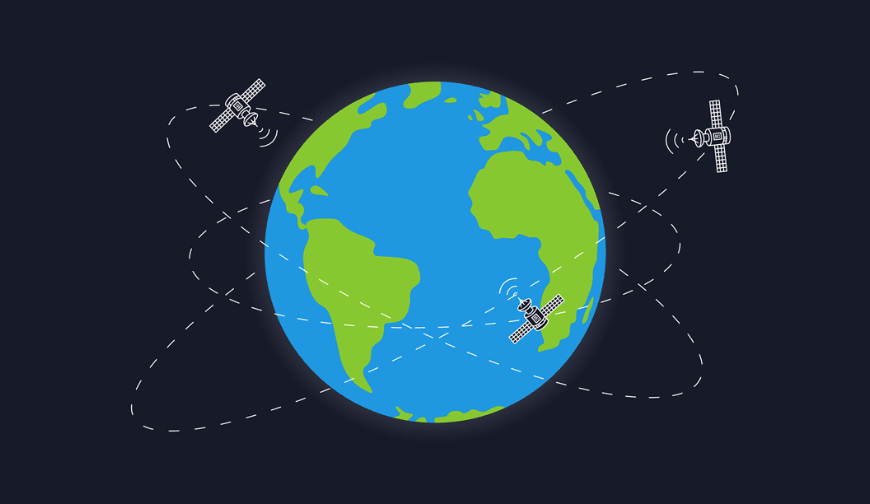In today’s fast-paced world, GPS navigation has become an indispensable tool for travelers, explorers, and professionals alike. From guiding drivers through unfamiliar streets to helping ships navigate vast oceans, GPS has revolutionized the way we navigate the world around us.
Historical Background of GPS Navigation
Early Navigation Methods
Before the advent of GPS technology, navigating across long distances was a complex and often perilous task. Early explorers relied on celestial navigation, maps, compasses, and landmarks to find their way.
Development of GPS Technology
The concept of GPS (Global Positioning System) was born out of the need for precise navigation and location tracking. Developed by the United States Department of Defense in the 1970s, GPS was initially used for military purposes before being made available for civilian use.
How GPS Navigation Works
Satellite System Overview
GPS relies on a network of satellites orbiting the Earth to transmit signals to GPS receivers on the ground. These satellites continuously broadcast precise timing and positioning data.
Triangulation and Positioning
GPS receivers use signals from multiple satellites to triangulate their exact position on Earth’s surface. By analyzing the time it takes for signals to travel from the satellites to the receiver, GPS devices can determine their latitude, longitude, and altitude.
Evolution of GPS Navigation Devices
Early GPS Devices
Early GPS navigation devices were bulky and expensive, primarily used by the military and aviation industry. However, advancements in technology have led to the development of smaller, more affordable GPS receivers for civilian use.
Integration with Smartphones and Vehicles
Today, GPS navigation is ubiquitous, thanks to its integration into smartphones and vehicles. With GPS-enabled smartphones, users can access real-time navigation, traffic updates, and points of interest with just a few taps.
Impact of GPS Navigation on Society
Transportation and Logistics
GPS has transformed transportation and logistics by optimizing routes, reducing fuel consumption, and improving delivery times. Fleet management systems rely on GPS tracking to monitor vehicle locations and ensure efficient operations.
Emergency Services and Public Safety
GPS plays a vital role in emergency services, allowing first responders to quickly locate and assist individuals in distress. From search and rescue missions to ambulance dispatch, GPS technology saves lives by reducing response times.
Personal Navigation and Travel
For everyday consumers, GPS navigation has made travel more accessible and enjoyable. Whether hiking in the wilderness or exploring a new city, GPS devices provide peace of mind and confidence in navigating unfamiliar terrain.
Advantages and Disadvantages of GPS Navigation
Advantages
- Accurate and real-time navigation
- Increased safety and security
- Enhanced efficiency and productivity
Disadvantages
- Dependence on satellite signals
- Limited functionality in remote areas
- Privacy concerns related to location tracking
Future of GPS Navigation
Technological Advancements
The future of GPS navigation holds promise with advancements in satellite technology, improved accuracy, and integration with other navigation systems like Galileo and GLONASS.
Potential Challenges and Solutions
Challenges such as signal interference, cybersecurity threats, and environmental factors may impact the reliability of GPS navigation. However, ongoing research and innovation aim to address these challenges and ensure the continued evolution of GPS technology.
Conclusion
In conclusion, GPS navigation has revolutionized the way we navigate the world, offering unparalleled accuracy, convenience, and safety. From its humble beginnings as a military tool to its widespread adoption in everyday life, GPS continues to shape the way we explore and interact with our surroundings.
Unique FAQs
- How accurate is GPS navigation?
- GPS navigation can be highly accurate, often within a few meters under ideal conditions. However, factors such as satellite geometry, signal interference, and environmental obstacles can affect accuracy.
- Can GPS work without an internet connection?
- Yes, GPS navigation does not require an internet connection to function. GPS devices receive signals directly from satellites, allowing them to provide offline navigation capabilities.
- Are there alternatives to GPS navigation?
- While GPS is the most commonly used navigation system, there are alternatives such as GLONASS (Russia), Galileo (European Union), and BeiDou (China). Some devices also utilize cellular and Wi-Fi positioning for indoor navigation.
- What are the privacy concerns associated with GPS navigation?
- Privacy concerns related to GPS navigation primarily revolve around location tracking and data collection. Users should be aware of the information collected by GPS devices and take steps to protect their privacy, such as disabling location services when not needed.
- Is GPS navigation reliable in remote areas or dense urban environments?
- GPS navigation may experience limitations in remote areas with poor satellite coverage or dense urban environments with tall buildings that obstruct signals. In such cases, users may experience reduced accuracy or temporary signal loss.
